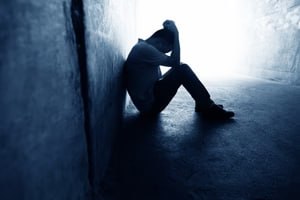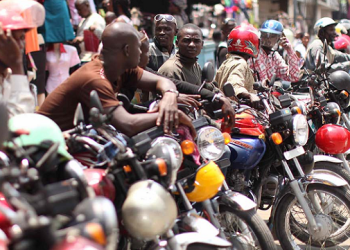Dean of the School of Nursing and Midwifery at the University of Cape Coast, Professor Jerry Paul Ninnoni has disclosed that the enormous pressure men undergo is a result of societal constructs and traditional beliefs.
He indicated that these widely-held beliefs contribute to men’s reluctance to seek help when they encounter challenges in their lives.
Prof. Ninnoni was speaking to ATLFMNEWS as part of the discourse on celebrations during the International Men’s Day observed annually on November 19.
The day was instituted in 1999 by Dr. Jerome Teelucksingh, a Trinidad and Tobago academic and is set aside to address men’s rights and interests as well as complement the annual International Women’s Day celebration.
The celebration this year is under the theme “Men’s Health Champions”.
According to Prof. Ninnon, the mental issues men usually face are overlooked and not given the needed attention.
However, he said its about time men come out and recognize their vulnerability in society.
He explained that the notion that “Men do not cry, nor shed tears” as a theory within the African traditional masculinity norms are obviously affecting men’s health.
ICYMT: 10 signs you’re a genuine introvert, according to psychology
This, he notes puts men and even the boy child always at the receiving end adding “its is so because of the cultural implications.”
“…You know, fathers and their families, even the university community here, we go through a lot of things,” Prof. Ninnon stated “And of course, because of the cultural nature of it, because of masculinity norms, that men are supposed to be tough, men are supposed to be brave, men don’t share emotions.”
Additionally, he said instead of coming out to express their feelings, their worries they see that as a weakness because of the societal acceptance of who a man is in their family.
Professor Jerry Paul Ninnoni therefore called on men to accept that they are vulnerable emphasizing they must speak up on their problems with their significant others and further encourage other men to seek help.
‘Let us not keep things to ourselves. Let us seek help.’ He stressed.
In the same vein, Director of the Centre for Gender Research, Advocacy and Documentation, Professor Eunice Fay Amissah, appealed to men to prioritise their own health by undergoing regular health check-ups, maintaining a balanced diet and exercising regularly.
She said this will should be a consistent activity in their daily lifestyle.
“Regular checkups, very important. It’s when it’s done regularly that something can be picked up earlier. And the doctors will tell us that when it’s picked up earlier, it can be dealt with earlier.”
Source: Afote Asomdwoe Laryea/ATLFMNEWS


























